HURRICANES AND WEATHER
There is a moderate risk for severe weather from Nebraska to West Virginia on Friday. See figure at right. The ridge of high pressure has shifted eastward and the means the southeast it now getting a taste of the 90s plus high humidity. It is still just as hot as ever in Texas and there are 100+ temperatures in the desert Southwest. Highs will be in the 60s and 70s along the west coast, northern states and the northeast. Enjoy!
Houston, you have been 97 or 98 for several days now...and only a few degrees shy of the record each day. Normal high for this time of year is 91. But it could be worse...hottest temperature ever recorded in Houston was 109 on Labor Day, September 4, 2000. I'll take that 97 or 98. No rain in site...some hint of the high pressure retrograding back to the west by the end of next week which means we might get some rain skirted around the east side. But don't hold your breath. For information on heat safety, see the AND MORE section.
SPANISH WORD OF THE DAY
Let's do heat stroke or golpe de calor, pronounced GOAL-pay DAY CAH-lore. To find out the difference between golpe de calor and heat exhaustion, go to the AND MORE section.
When we shot Let's Learn Spanish with Frank & Paco, Volume 1, we had beautiful green foliage everywhere (due to late spring/early summer rains). Much of it was shot in July 2 years ago. Here it is June 18th and everything is starting to dry up. To remember how beautiful it was, check out our web site or order your own copy of our award winning DVD Let's Learn Spanish with Frank & Paco, Volume 1 from www.frankandpaco.com/. You can also order from http://www.venturaes.com/, http://www.dololanguages.com/, http://www.carlexonline.com,www.thecuriousmindstore.com/, http://www.amazon.com/,http://www.bestbuy.com/, and http://www.barnesandnoble.com/. For our English as a Second Language (ESL) version, got to http://www.frankypaco.com/
AND MORE
Our poll about communication technology is closed. 87% said they have high speed Internet. 0% said they access Internet via modem. 62% said they have a wireless Internet device. 100% have cell phones. 12% had a pager. 75% have a landline phone. 12% have an extra cell phone. 75% have cable TV. 0% have a smart phone. More than one answer was allowed. Thanks to all who participated.
Our new poll is about the challenge of handling kids during summer or the school year. Which is harder? Only one answer is allowed. Thanks in advance for participating.
In my last post, I told you I would discuss something called the Employee Trip Reduction Program. That was a mandatory program in the Houston area that began in the early 90s after the Clean Air Act Amendments of 1990. One facet was that companies paid their employees a certain amount per month if they carpooled together enough days of the week. By the mid-90s, the program was changed to purely voluntary due to complaints from many sectors (private and business). There are still some locations in the U.S. with mandatory programs. The names vary--Trip Reduction Program, Commute Reduction Program etc. Some of the mandatory programs are in parts of Arizona, California, Washington state and Tennessee. For a complete list, check out the following link.
http://www.nctr.usf.edu/clearinghouse/tro/trolist.htm
About 175 people per year die directly due to heat. This is more people than are killed by any of the folllowing natural hazards: lightning, hurricanes, tornadoes, floods, or earthquakes. The following information is from The National Weather Service and American Red Cross.
Heat Wave Safety Tips
Slow down. Strenuous activities should be reduced, eliminated, or rescheduled to the coolest time of the day. Individuals at risk should stay in the coolest available place, not necessarily indoors.
Dress for summer. Lightweight light-colored clothing reflects heat and sunlight, and helps your body maintain normal temperatures.
Put less fuel on your inner fires. Foods (like proteins) that increase metabolic heat production also increase water loss.
Drink plenty of water or other non-alcohol fluids. Your body needs water to keep cool. Drink plenty of fluids even if you don’t feel thirsty. Persons who (1) have epilepsy or heart, kidney, or liver disease, (2) are on fluid restrictive diets or (3) have a problem with fluid retention should consult a physician before increasing their consumption of fluids.
Do not drink alcoholic beverages.
Do not take salt tablets unless specified by a physician.
Spend more time in air-conditioned places. Air conditioning in homes and other buildings markedly reduces danger from the heat. If you cannot afford an air conditioner, spending some time each day (during hot weather) in an air conditioned environment affords some protection.
Don’t get too much sun. Sunburn makes the job of heat dissipation that much more difficult
Know These Heat Disorder Symptoms
SUNBURN: Redness and pain. In severe cases swelling of skin, blisters, fever, headaches. First Aid: Ointments for mild cases if blisters appear and do not break. If breaking occurs, apply dry sterile dressing. Serious, extensive cases should be seen by physician.
HEAT CRAMPS: Painful spasms usually in muscles of legs and abdomen possible. Heavy sweating. First Aid: Firm pressure on cramping muscles, or gentle massage to relieve spasm. Give sips of water. If nausea occurs, discontinue use.
HEAT EXHAUSTION: Heavy sweating, weakness, skin cold, pale and clammy. Pulse thready. Normal temperature possible. Fainting and vomiting. First Aid: Get victim out of sun. Lay down and loosen clothing. Apply cool, wet cloths. Fan or move victim to air conditioned room. Sips of water. If nausea occurs, discontinue use. If vomiting continues, seek immediate medical attention.
HEAT STROKE (or sunstroke): High body temperature (106° F. or higher). Hot dry skin. Rapid and strong pulse. Possible unconsciousness. First Aid: HEAT STROKE IS A SEVERE MEDICAL EMERGENCY. SUMMON EMERGENCY MEDICAL ASSISTANCE OR GET THE VICTIM TO A HOSPITAL IMMEDIATELY. DELAY CAN BE FATAL. Move the victim to a cooler environment Reduce body temperature with cold bath or sponging. Use extreme caution. Remove clothing, use fans and air conditioners. If temperature rises again, repeat process. Do not give fluids. Persons on salt restrictive diets should consult a physician before increasing their salt intake.
Stay cool everyone!
Cecilia Sinclair
Wonder Weather Woman
HONORING RUTH IN HOUSTON!
14 years ago



















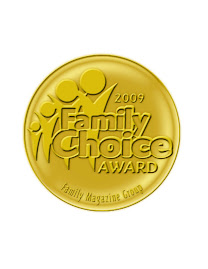








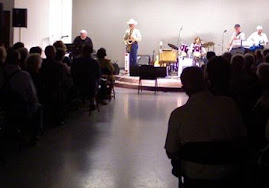.jpg)




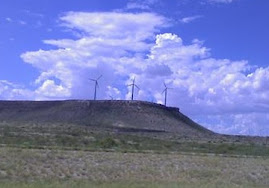.jpg)




.jpg)
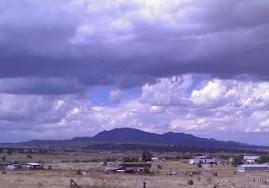.jpg)
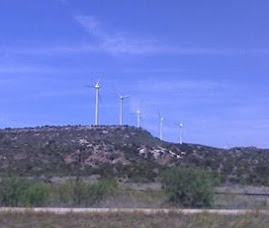.jpg)

















